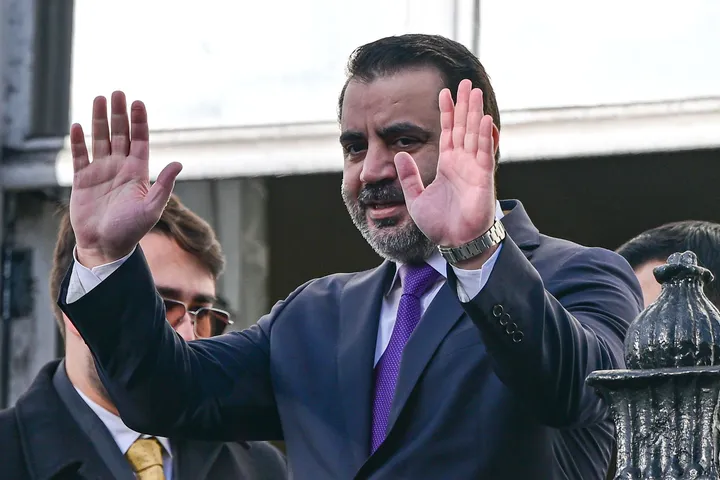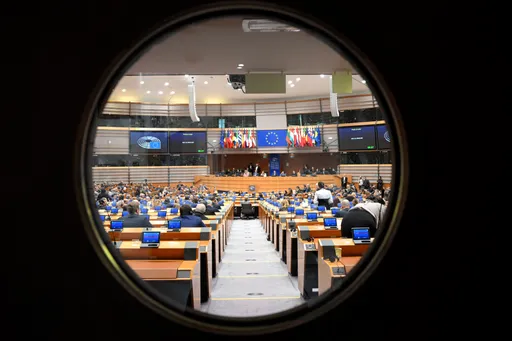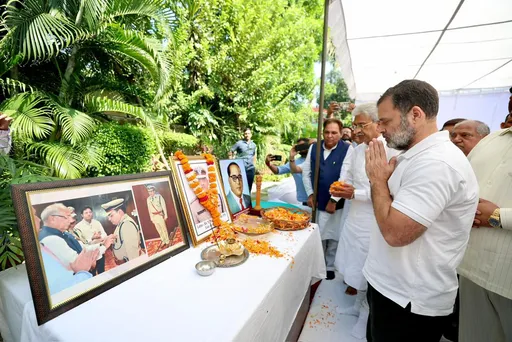An intense debate is raging in Pakistan over a proposed law that seeks to give the central bank unprecedented autonomy and make it difficult for the government to print new bank notes to meet its expenses.
Critics say the State Bank of Pakistan (SBP) Amendment Act 2021, which is up for debate in the parliament, is being pushed at the behest of the International Monetary Fund (IMF), which is helping Islamabad with a $6 billion loan.
At the heart of the debate is a proposal that makes fighting inflation the primary job of the central bank instead of funding government-sponsored credit schemes.
Targeting inflation is a priority for central banks around the world, says Salim Raza, a career banker who headed the SBP from 2009 to 2010.
But other countries “can make inflation targeting rank with any other responsibilities,” a luxury Pakistan doesn’t have, he tells TRT World.
“Inflation in Pakistan is 8.7 percent compared with the world average of 2.5 percent. So we are a high inflation country.”
The amendment in the law allows the central bank to stop giving credit to the government, which in turn would be forced to cut expenses or make up the deficit from tax revenue.
“Government’s whole fiscal strategy and management needs a massive overhaul. If you allow it to continue borrowing from the State Bank then that overhaul will be postponed,” says Raza.
Under IMF pressure, Prime Minister Imran Khan’s government has already taken the difficult decision of increasing electricity tariffs and rolled back tax exemptions for some sectors.
“It is necessary to fight inflation in Pakistan because the government has had an easy conduit of funds from the State Bank. It hasn’t applied the fiscal policy as they should,” says Raza. A central bank has to print new bank notes to finance the government's budget, something that increases the money supply and causes inflation.
Successive governments have relied on borrowing from the central bank to meet budgetary needs instead of trying to stop the financial hemorrhage from state-run entities like Pakistan International Airlines, for instance.

Many Pakistanis rank high inflation as their top worry in absence of sufficient social security schemes. (AP Archive)
The pandemic dilemma
While the Covid-19 pandemic has pushed economic projections off course, the recent resumption of the IMF programme after a year long-gap has helped the Pakistani rupee gain against the dollar.
This week, Islamabad also comfortably raised $2.5 billion via an international bond issue.
But the proposal to give more powers to the central bank, which will have complete freedom to raise interest rates, comes at a time when governments across the world have lowered rates to revive their economies. The IMF has faced criticism in the past for pursuing a double-standard in its dealings with developing countries, which are often forced to implement harsher austerity measures compared to developed nations.
Raza says Pakistanis shouldn’t fear too much about a hit on their spending power even if the central bank decides to increase interest rates.
“Real interest rate is actually negative. Our policy rate (the interest rate charged by the central bank) is 7 percent while inflation rate is 8.7 percent.”
Adjusted for inflation, the real interest rate shows the actual cost of borrowing funds.
“No one should think that monetary policy is meant to throttle growth,” says Raza.
Experts say that some consequences of inflation such as electricity prices, which are regulated by the government, are not driven by consumption and hence cutting back on the money supply won’t have a big impact.
“It doesn’t matter where the inflation is coming from. The important thing is that we need to tackle it,” says Raza.
Financial losses attributed to the electricity sector are a major headache for policymakers. Raza says inefficiency, corruption and losses due to rickety power lines mean that the government gets a return of 70 cents on every dollar that goes into the system.
What’s known as a circular debt in Pakistan — where one energy firm owes money to another along the fuel supply chain — runs into billions of dollars.
Similarly, the government can improve its finances without applying fresh taxes if it plugs the leakages in the revenue collection machinery, says Raza.
“If Pakistan collects the taxes it applies with 100 percent efficiency, it’s collection will come to 23 percent of the GDP. It actually collects 11 percent of GDP.
“No one expects that any government can collect 100 percent. There’s a leakage of 5 percent or so. But non-collection of 50 percent taxes - that’s too much.”





























